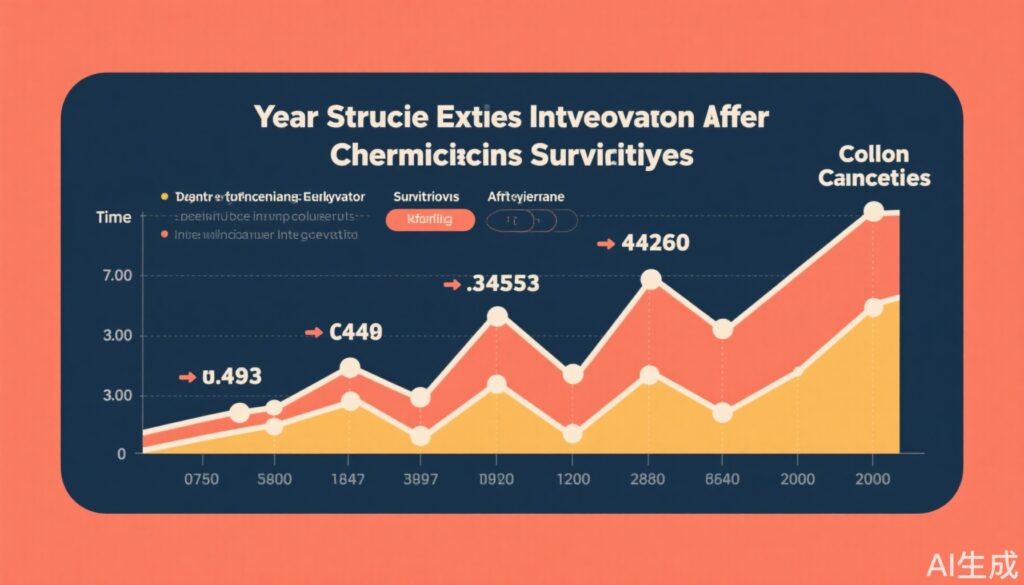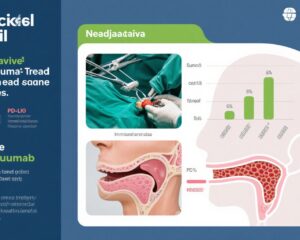Highlights
- The CHALLENGE trial is the first large phase 3 randomized study demonstrating that structured exercise after adjuvant chemotherapy significantly improves disease-free survival in colon cancer.
- Exercise intervention reduced hazard for disease recurrence, new primary cancers, or death by 28%, and showed consistent benefit in overall survival with a 37% reduction in mortality risk.
- The exercise program was sustained over 3 years and implemented at 55 centers internationally, emphasizing feasibility in diverse clinical settings.
- Some increased musculoskeletal adverse events were noted with exercise, highlighting the need for supervised, tailored programs to minimize risks.
Background
Colon cancer remains a major global health burden with substantial morbidity and mortality rates despite advances in surgical and medical therapies. Adjuvant chemotherapy improves outcomes in resected stage II and III colon cancer, yet recurrence rates remain a clinical challenge. Observational and preclinical studies have suggested that physical activity post-cancer treatment may improve prognosis, potentially through immunomodulation, reduced inflammation, and metabolic effects. However, prior to the CHALLENGE trial, definitive level 1 evidence supporting exercise interventions in the adjuvant colon cancer setting was lacking.
Key Content
Chronological Development of Evidence
Initial observational studies linked higher post-treatment physical activity levels to improved survival in colon cancer, generating hypotheses about exercise as an adjuvant intervention. Smaller pilot and phase 2 studies established feasibility and potential benefits of structured exercise programs. The CHALLENGE phase 3 trial (2009-2024) provided definitive randomized controlled evidence with long-term follow-up.
Study Design and Population
The CHALLENGE trial randomized 889 patients with resected colon cancer who completed adjuvant chemotherapy to either a structured exercise intervention or health-education materials (control). The exercise group participated in a 3-year supervised program emphasizing aerobic and resistance training tailored to patients’ capabilities. Eligible patients represented diverse demographics and disease stages across 55 centers. The primary endpoint was disease-free survival; secondary endpoints included overall survival and safety.
Efficacy Outcomes
At a median follow-up of 7.9 years, the exercise group demonstrated a significant improvement in disease-free survival compared with the health-education group (hazard ratio 0.72; 95% CI 0.55-0.94; P=0.02). This translated into a 5-year disease-free survival of 80.3% versus 73.9%, an absolute improvement of 6.4 percentage points.
Overall survival was also longer in the exercise group (hazard ratio 0.63; 95% CI 0.43-0.94), with an 8-year overall survival of 90.3% versus 83.2%, a 7.1 percentage point difference. These results represent clinically meaningful gains consistent across subgroups.
Safety and Adverse Events
Musculoskeletal adverse events were more frequent in the exercise group (18.5%) than controls (11.5%), mainly mild to moderate strain or joint symptoms. No serious exercise-related adverse events were reported, underscoring the overall safety with proper supervision.
Mechanisms and Translational Implications
Exercise may exert anticancer effects through multiple biologic pathways: enhancing immune surveillance, lowering systemic inflammation, improving insulin sensitivity and metabolic profiles, and mitigating treatment-related toxicities. The trial underscores the importance of integrating lifestyle interventions with standard cancer treatment.
Expert Commentary
The CHALLENGE trial fills a critical gap by providing level 1 evidence that supports recommending structured exercise as a standard component of survivorship care post-adjuvant chemotherapy in colon cancer. Current clinical guidelines may evolve to incorporate exercise prescriptions tailored by oncology providers. However, effective implementation requires infrastructure for exercise counseling, monitoring, and addressing barriers such as patient comorbidities and motivation.
Some limitations include the potential for selection bias since participants were motivated enough to comply with exercise programs and the challenge of generalizing findings to all colon cancer populations. Further research should explore optimizing exercise intensity, modality, and timing in conjunction with emerging adjuvant therapies.
Conclusion
This landmark phase 3 randomized trial demonstrates that a structured exercise program initiated soon after adjuvant chemotherapy significantly improves disease-free and overall survival in patients with resected colon cancer. These findings support integrating exercise interventions into routine clinical practice and survivorship care models, representing a major advance in adjuvant colon cancer management.
References
- Courneya KS, Vardy JL, O’Callaghan CJ, et al. Structured Exercise after Adjuvant Chemotherapy for Colon Cancer. N Engl J Med. 2025 Jul 3;393(1):13-25. doi:10.1056/NEJMoa2502760. PMID: 40450658.
- Schmitz KH, Courneya KS, Matthews C, et al. American College of Sports Medicine roundtable on exercise guidelines for cancer survivors. Med Sci Sports Exerc. 2010 Jul;42(7):1409-26. doi:10.1249/MSS.0b013e3181e0c112.
- Ligibel JA. Lifestyle interventions in cancer survivors: implementing evidence-based approaches for optimal patient care. J Clin Oncol. 2019 Mar 1;37(7):547-553. doi:10.1200/JCO.18.01423.
- McTiernan A. Mechanisms linking physical activity with cancer. Nat Rev Cancer. 2008 Mar;8(3):205-11. doi:10.1038/nrc2325.



